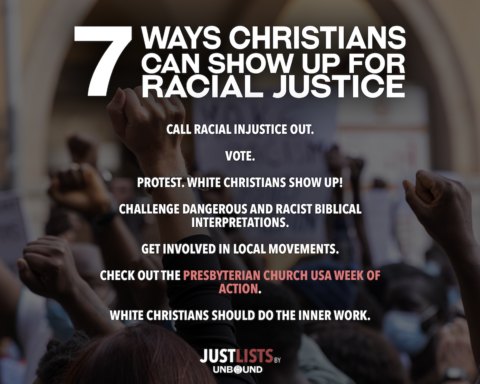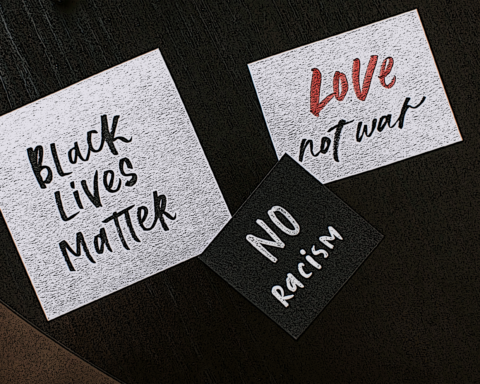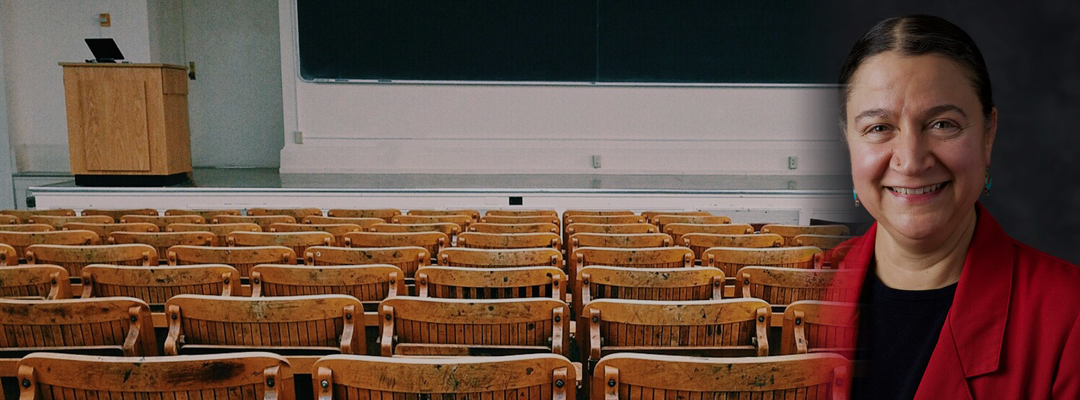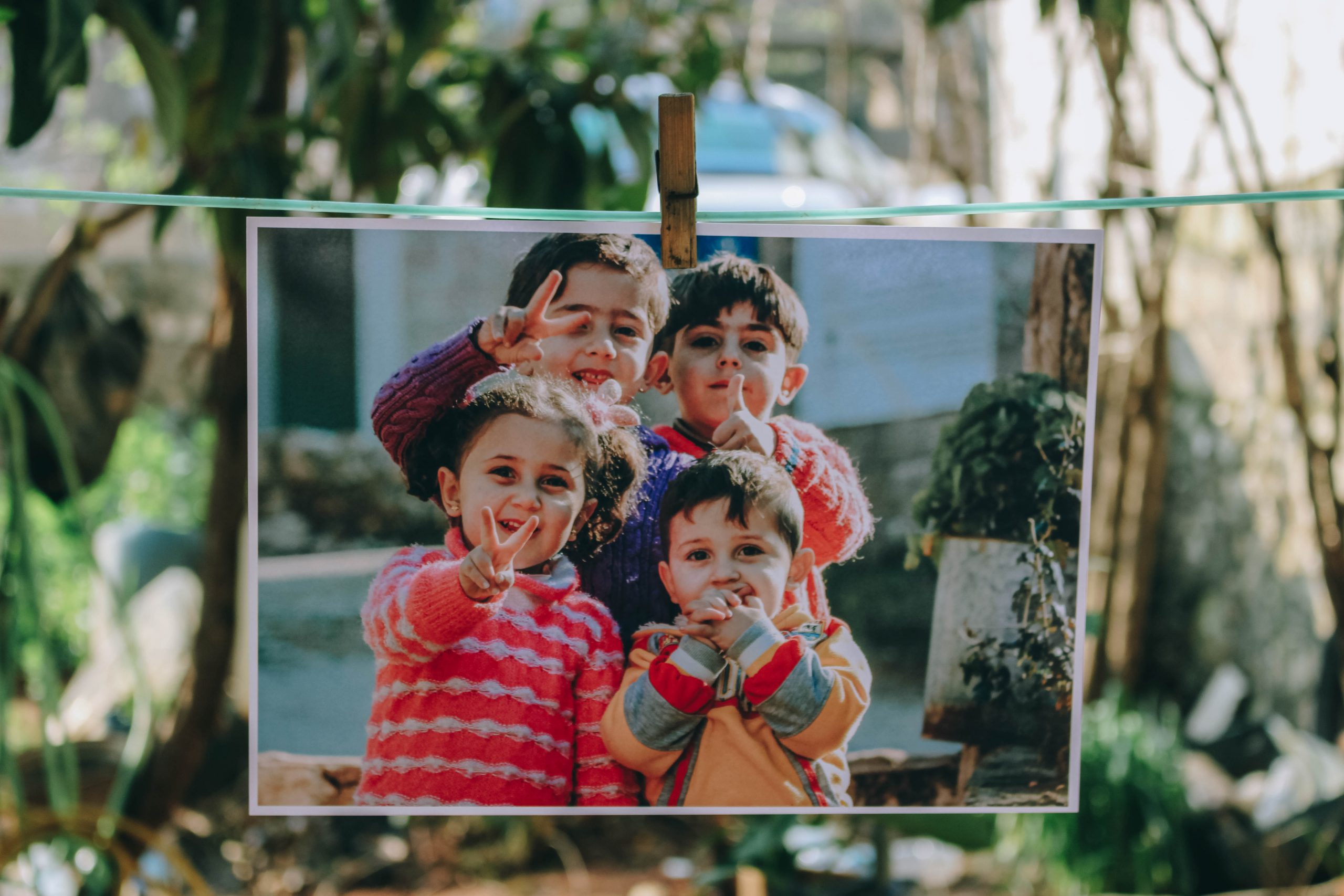Lee:
I spoke to colleague who is Native American the other day and we had a conversation about who to connect with and who would be interested in contributing to this issue. And she told me that a lot of native people have been told that the way in which native peoples learn and educate has not been the “civilized or academic” standard. And so, I’m really glad you touched on that earlier because I have been in conversations that challenge the notion of academic writing or academia. So maybe speak a little bit more about that and how we, Western dominant, white culture, has defined exactly what it means to be educated and what it means to be academic because even as we speak, Unbound has also been characterized as an “academic” journal. So, how can we break those societal constructs a little bit, specifically in different ways of learning and when it comes to education?
Elona:
Okay. So, I know that if we’re really trying to define academics that would come from the Academy and it would come from a learning style that’s often written and linear and going back to the experiences of Greco Roman styles, but even that is denial. Because there were libraries of scholars in Africa. So, we continue to see this as a white dominated privilege around who’s educated and who has the ability to teach. But we know that there was incredible learning and knowledge going on in South America and in Africa.
What I’m hoping is that over time we’ll be able to go back to the pedagogy. And so when you’re talking to American Indian scholars and professors, they offer to us the things that native people were thinking. They were thinking earlier about brain development and how your senses are a way to understand the world and the place where you survive is the natural world.
And so, native people had their own understanding of the complex matters of science and chemistry and physics and about how organisms work together, how elements work together and what the “spirit” was in all of the natural world. We now can say that it was native people that offered plants as medicine. And now, of course, we’re creating those by pharmacy which artificially creates these medicines in labs. But native people were doing this in their world experience. We’re able to talk about medicines and healing and the inner reaction. Watching and seeing the tide or being able to describe cycles, whether it’s the ocean cycles or seasons or constellations, native people had descriptions of that.
“You weren’t civilized. And so we’re not taking the time to listen to your interpretation of what happened.” But we’re in a very dynamic setting right now because in general, both public, private and parochial kinds of education experiences are all shifting because there’s public interest and pressure to talk about these issues. We want to provide education that produces the results we want. So we want the best working class ever. We want highly intelligent people who can adapt to a changing environment and who can be cross-cultural because the continents are all that much closer now than maybe they ever were before. And so, I’m excited right now. And in the Twin Cities, a number of the native run Indian agencies, whether it’s Indian education, social services, philanthropy, communications, etc., those are all administered now and managed by natives who have degrees.
Elona:
So, yes, we can be part of lab experiences as inventors and co-creators along with you. But what we’re not going to do is shed or eliminate or ignore what we bring out of our cultural traditions. In fact, we were expecting that you will be introduced to those things and learn about that. So, we now have a higher expectation of what it takes for native students to graduate from high school, which we still have some of the areas of growth there. Those are the disparities around the country. We still fall short of the graduation rates that are expected, but a lot of that is impacted by absenteeism and homelessness. They’re actually not in the classroom to learn and when they’re there you’ll have teachers that will provide education that is not suitable for them.
But, we have more and more native high school graduates that also are grasping at this higher interest in secondary education. So, they want to go on to college, but they want to use that educational experience and those job experiences to come back and help their people. And it may not mean in their own reservation or their own tribal communities, but they want to do that for indigenous people. So native peoples are impacting the education around law, the arts, communication, architecture. We have a sous chef here who is native and impacting the way hotels and grocery stores deliver food and produce that’s helpful and beneficial. There is a lot of attention on those efforts right now because native people have said, “When you want to talk about surviving into the future, we have wisdom about that.” We’re practicing things using current elements, current experiences, current opportunities, and we’re still shaping that and creating that out of our own cultural traditions. So this really is a very exciting time to listen to native people, to see that we’re still here, to learn from us because up until this time, nobody ever came to us for the one-on-one about surviving in the United States. Well, we can do that. I mean, we’re firsthand direct experiences about that.
Lee:
I think in closing, it is important to ask the question of what is the role of people of faith in this conversation? What are people of faith’s responsibility and role within these issues, specifically in education and when it comes to our siblings who are native peoples? What is the role of people of faith?
Elona:
We are reformed people who understand that we can approach the Creator or God through Christ, the older brother — that’s how I refer to Christ, the older brother who came to teach us how to live together in the kingdom of God. So, part of those teachings of the older brother is to be able to say, you need to be humbler. You need to lament the disastrous decisions that you have made that have hurt and harmed other people. And the experiences that Christ often has reflected both during his time on earth and as he continued to share things that have been passed on to all of us in the church, it’s an opportunity. We talk a lot about the apologies to natives. Well, it’s not just simply the words of the apology. What we’re really looking for is do you fully understand that you tried to erase, erase off the face of the earth, nations of people in the name of Jesus?
It should be breathtaking like gasping for breath to be able to say to native people that we’re sorry for what we’ve done. Because the immense proportion of what was the disaster with the doctrine of domination was Christians who divided the world. It was centered around if you were a Christian or if you had a Christian sovereign and not about how great you’re living your life or the understanding of the gospel or the biblical traditions. If you weren’t Christian or didn’t have a Christian sovereign, you didn’t even exist, you might not even be human. And it took so long here in the United States for native people to be seen as human. So, I think for church people the reality is that we are called to check everything. What are our biases? What are our stereotypes?
How have we discriminated against people and catching that? So, stop doing the toxic charity with native people. Everybody says, “Well, we’re doing mission with you.” They’ll come out and do our vacation Bible school and paint our steps and they’ll bring all these people from other places who don’t even know the Native American people in their own backyard. But they’ll come out to Indian country like in Pine Ridge or Dakota Presbytery or up in Alaska or whatever. And they’ll do good things because you’re not capable of doing those things yourself. And we’ll invite you to come back and be an exhibit for our own community. And I need to be sarcastic about this because that’s exactly what happens.
We’re always put on exhibition. It’s like we’re the museum relic that now has been polished and brought out for all the church to see. So, even with the work around the Doctrine of Discovery and the blanket exercise, it’s like people are seeing us for the first time. And so, it’s still like wandering through a museum. It’s like that was past tense, but now they’re here. We got to stop doing that. Because all of that, as I said, is an abomination. What we really need to recognize is an opportunity for us to reshape the world and to look at future generations to make sure that all children have Indian education. All children understand the rights of passage so that they can receive and accept the responsibilities that will be theirs and how to care for the earth and be good stewards to share information rather than hoard it.
In Dakota, the word Wašícu is the word that stands for the non-Dakota people. But as it’s translated more than just the white people, it means that people who stole the fat, those individuals who would look at what’s available for everyone to eat as the common meal and they’re the ones that take the fat, the ones that absorb and digest and consume the best of what there is to offer. So every time somebody uses that word, it’s challenging the dominant culture to say, “Stop doing that.” Because you’re consuming people and that’s not what you’re supposed to be about. Recognize that we are people of honor and we expect that we are to be respected.
And so, when we are now revitalizing our native languages, which again, Christians forbid us to speak, but now as we revitalize those languages, it’s not just the vocabulary interpretation, it’s understanding the concepts behind the meaning of those words. In those descriptive sounds, the concepts open up a lens into what was the indigenous world. And so, being able to understand science and math and social relations and economics as we continue to regain our own language and adapt to a modern environment, we’re also saying, “Yeah, there’s another way to see the world. It didn’t disappear. It’s still there. It’s just that you intentionally want to be blind to it.” Well, we’re challenging you now to take those scales off your eyes. There’s so many scriptural messages that would relate to some of these experiences about how Christ has made it possible for us to be unified with a companion.
We’re not doing this on our own because we would never make it, but there’s a Holy Spirit that resides among us. And that was the promise that Jesus gave. And so, native people understand that we’re surrounded by our ancestors. Indigenous Africans understand that they’re surrounded by their ancestors. Asian descendants understand they’re surrounded by their ancestors and these spirits that are there to guide you. The people that have been mostly disconnected are those that have adhered to this ideology of domination – a destiny that this was supposed to be the promised land for all of you lost souls coming over from Europe. At some point we need shake loose of all that. Because the day of reckoning will be coming and there’s going to be challenges about what did you do in the world while you were there?
Did you care for my people? Did you feed my sheep? And if you’re going to be honest, you’re going to say, “No.” We took that fat for ourselves for our own children even though we thought we had good intentions to help other people and didn’t realize we were supposed to learn from them and not treat them as objects of our mission.
Lee:
Elona, I am so honored that you did this and honored to witness your story and everything that you have done and for this interview. I am truly honored for that. I thank you so much for doing this. This was great and I think this is something people really need to hear.
Elona:
Along with all my other siblings who are going to be part of the particular edition of the Unbound, you know, we have so much to contribute. We all are not particularly thinking alike. But, when you take all of our ideas together with young people like you and other writers and publishers, this is an incredible time.

Elona Street-Stewart is the first Native American to serve as a synod executive in the Presbyterian Church (U.S.A.). A longtime staff member of the Lakes and Prairies Synod, Elona had served as the synod’s associate for racial ethnic ministries and community empowerment since 1994. Prior to serving in that capacity she had been deployed staff for administration of Dakota Presbytery. Issues of diversity and the special needs and challenges in racial/ethnic ministry are her specialty.






Unbound Social